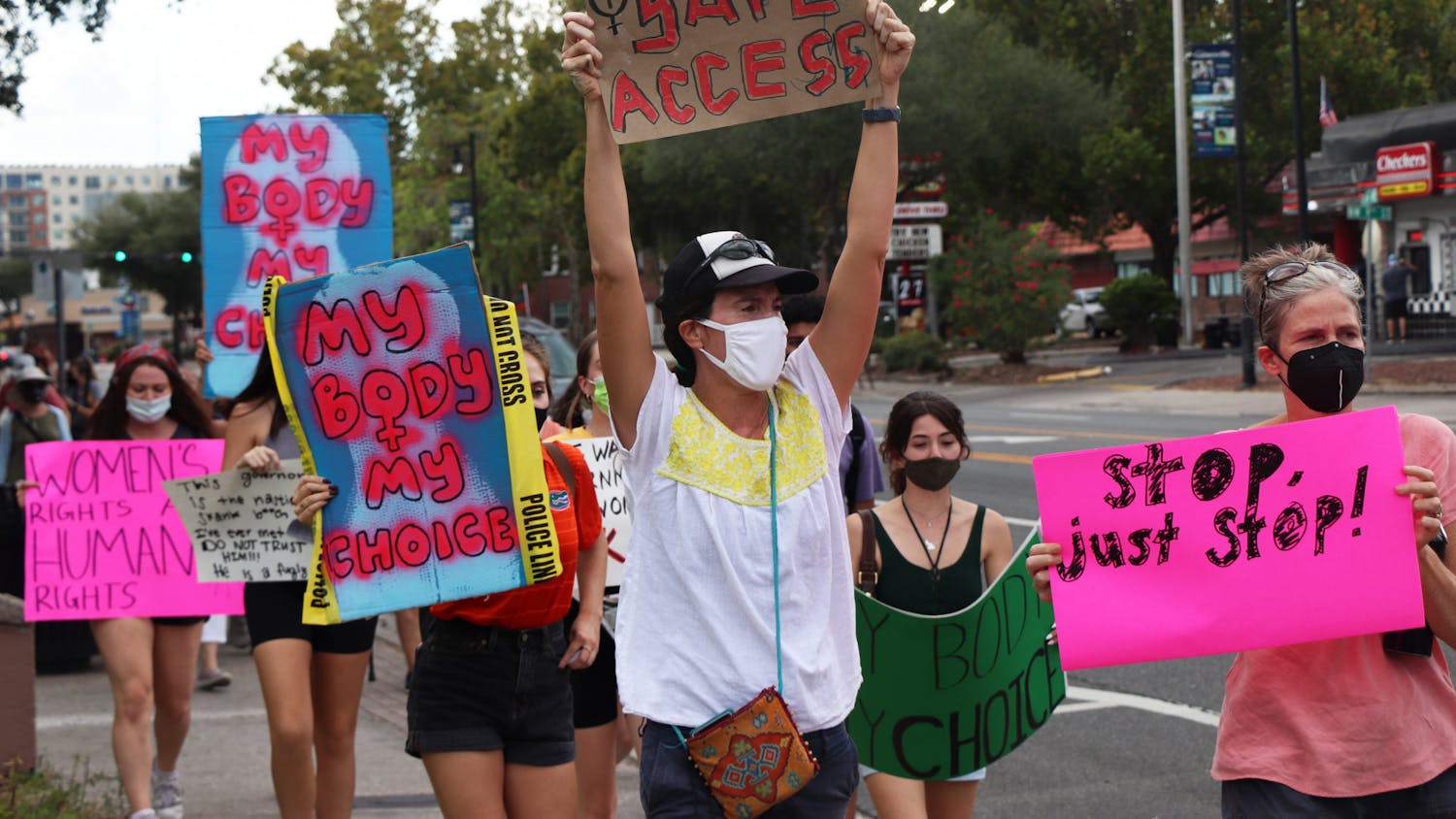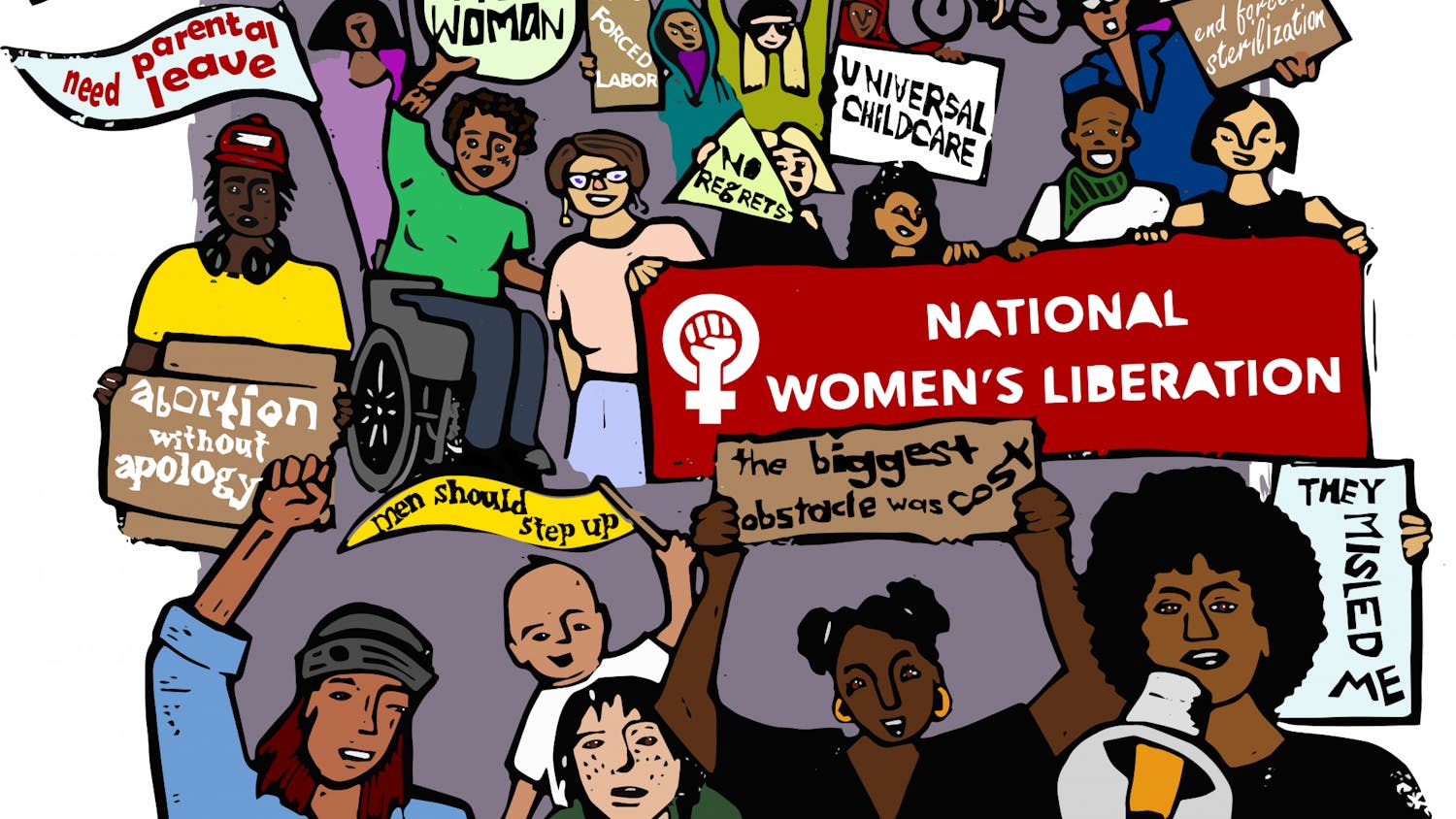In Saudi Arabia, women cannot drive.
In India and China, some newborn girls are killed at birth.
Women’s rights in the U.S. have come a long way, from the suffrage movement to the feminist movement; from the exclusion of women in the workforce to the inclusion of them in the military. Women in the U.S. now have more rights than ever.
But we can’t forget what has troubled women of all nationalities: rape.
At some point in her lifetime, every woman has feared being raped. If it is dark outside and she is out alone, she fears being raped.
Sometimes we feel unsafe taking a walk at 11 p.m. to clear our minds because we’re worried some creep will follow us and take advantage of our singleness. We’re not leaving Library West at 4 a.m., we’re just going to spend the night — it’s too much trouble and too much risk. When we’re walking home alone, our keys are in one hand, and in the other, we are on the phone so that, just in case something does happen, there is sound evidence of what happened on the other line.
This may be an exaggeration to some, but for others, this fear is a part of daily life.
Though victims are not always women, men are less likely to be raped.
One in four college women has survived rape or sexual assault.
Rape is worse than being robbed or stabbed — those are external. Rape is intimate. It is unwanted, and it is internal. It is taking control of the inside of the body. It is less about sexual pleasure and more about control and power.
We’re not looking the stranger in front of us in the eye, for fear of what we might suggest. We feel even more vulnerable, like “easy targets,” when we’re in in short skirts or low-cut tops, for fear some man on the street might assume we are “asking for it” and force us to do it anyway when we resist. We don’t blame our outfits on the weather, our poor fashion sense, or even men — we blame ourselves.
Women are commonly taught three things: how to avoid rape, how to fight back during rape and what to do after rape. We avoid darkness and being alone. We carry pepper spray and walk swiftly. We call 911 and go to a clinic afterward.
Society has seemingly accepted the predator/prey relationship: the vulnerable single woman as prey, and the lonely aggressive man as the predator.
Why hasn’t anyone asked men to contain themselves? Is it natural to be sexually charged and aggressive? Are men by nature more demanding and violent?
Public decency and decorum can be taught. Men should be told early in their lives not to rape. Maybe there aren’t enough consequences: Ninety-seven percent of rapists will never spend a day in jail, according to statistics by Rape, Abuse & Incest National Network.
Society should make it clear that rape is not the victim’s fault. It is the rapist’s. No means no.
If she says no, resists or hesitates, men have to respect that.
One of the scariest parts of rape is that rapists are not usually strangers. About two out of three assaults are committed by someone known to the victim, and 38 percent are a friend or acquaintance.
If she’s drunk and won’t remember, respect her and walk away.
Just because you paid for her coffee, took her to dinner or bought her a drink does not mean she owes you in sexual favors.
If you’re unsure whether the money you spend on her will equate to sex, then just go Dutch and split the bill.
Chivalry is basically dead anyway. There are rapists out there.
Raksheen Ayaz is an advertising and business junior at UF. Her column usually runs on Thursdays. You can contact him via opinions@alligator.org.





